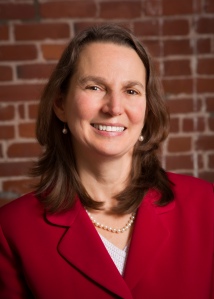
Barbra Rabson, MHQP President and CEO
Health Business Group is a sponsor of the upcoming anniversary party for Massachusetts Health Quality Partners (MHQP). I asked MHQP’s President, Barbra Rabson to reflect on the first couple decades.
MHQP is about to celebrate its 21st anniversary. What are you celebrating?
We are celebrating the courage and vision it took 21 years ago to found MHQP, and the amazing two decades of progress we’ve made since our inception. Our 21st anniversary is symbolic of our coming of age and reaching a level of maturity. MHQP has become an important part of the Massachusetts healthcare landscape over the decades thanks to the commitment and hard work of our diverse stakeholders – including patients, physicians, hospitals and payers. More than 40 sponsors and over 300 people are gathering on November 2 to celebrate MHQP’s unwavering commitment to reliable healthcare measurement and transparency and our pioneering work in the Commonwealth and the nation to systematically capture the patient voice and integrate it into care improvements.
At our anniversary celebration we will be honoring the vision of MHQP’s Founding Circle –Blue Cross Blue Shield of MA, Fallon Health Plan, MA Business Roundtable, MA Hospital Association (MHA), MA Medical Society (MMS), Harvard Pilgrim Health Care (HPHC), Tufts Health Plan and the State (Governor Charlie Baker was a founding member of MHQP when he was Secretary of Administration and Finance).
We will also be awarding MHQP’s first award in honor of the late Richard Nesson, MD, a founding visionary of MHQP when he was the Chair of the MHA Board in 1995 when MHQP was established. We are delighted that Susan Edgman-Levitan, the executive director of the John D. Stoeckle Center for Primary Care Innovation at Massachusetts General Hospital and the founding president of the Picker Institute will be the first recipient of MHQP’s H. Richard Nesson Award.
How has the environment changed in MA over the past 21 years? What role has MHQP played in that?
The healthcare environment is drastically different than it was when MHQP was founded in 1995. When MHQP first started collecting and reporting comparative statewide performance information, we were the only game in town. For example, MHQP’s first in the nation statewide patient experience survey of acute care hospitals and public release came a full decade before CMS developed the hospital H-CAHPs survey! Likewise, when MHQP began collecting and reporting statewide clinical and patient experiences measures for ambulatory care, MHQP’s data was the only reliable source for quality benchmarks for our provider organizations. Before MHQP’s comparative quality reports, Massachusetts provider organizations only knew their own performance scores, they had no comparative benchmarks or best practices to drive performance improvements. Physician leaders (Barbara Spivak, Tom Lee and others) have told us MHQP’s performance reports were invaluable to them because our reports became the writing on the wall that they needed to make significant investments in their organization in the form of electronic health records and quality improvement infrastructure to advance their performance to the level they aspired to.
Another big change is that our reimbursement systems now provide millions of dollars of incentives for provider organizations to improve performance. When MHQP first started the term ‘pay-for-performance’ had not yet been coined. MHQP has always [encouraged] improvements through public reporting of reliable and trusted comparative performance information – relying on physicians’ intrinsic motivation to perform as well as they can. Now that provider compensation depends heavily on measurement we need to work harder to make sure we have accurate and fair measurements of quality care.
Finally, back in 1998 when MHQP first starting reporting on patient experiences of care, patient experience was not considered a core measure of quality. MHQP’s statewide collection and reporting of patient experience helped draw national attention to the importance of listening to patients, and in 2001 the IOM introduced the concept of patient centered care as a key element of quality care in the Crossing the Quality Chasm Report.
Kindred organizations to MHQP have arisen around the country over the last couple decades. How do you relate to them?
MHQP was one of the first regional health improvement collaboratives (RHICs) to be founded in the country. Gordon Mosser (founding CEO of ICSI in Minnesota) and I organized the first meeting of regional collaboratives in 2004. As a founding member and past Board chair of NRHI (the Network for Regional Healthcare Improvement), it has been very gratifying to see so many new RHICs being established. There are now more than 40 across the country. I have been told by many of the younger RHICs that MHQP was a role model for them when they were first starting out, and I take great pride in that.
What does the future hold?
Great question, and one I have been reflecting on as we have been looking back on our first 21 years. One of the biggest challenges (and one of our greatest failures as a health care system) has been that we have not done a good job engaging our patients as a resource to help us improve outcomes. In many cases we have actively refused to seek input from patients, and when given feedback we have ignored it. We are now trying to make a 180 degree shift on this, to better engage patients in the co-production of solutions, and it is not easy because it requires a shift in mindset. I believe that MHQP’s two decades of experience capturing the patient voice and integrating that voice into care improvements positions us extremely well to support our practices and healthcare systems as they embark on this journey.
——-
By healthcare business consultant David E. Williams, president of Health Business Group.
from Health Business Blog https://healthbusinessblog.com/2016/10/11/mass-health-quality-partners-21-years-young/
via A Health Business Blog
No comments:
Post a Comment